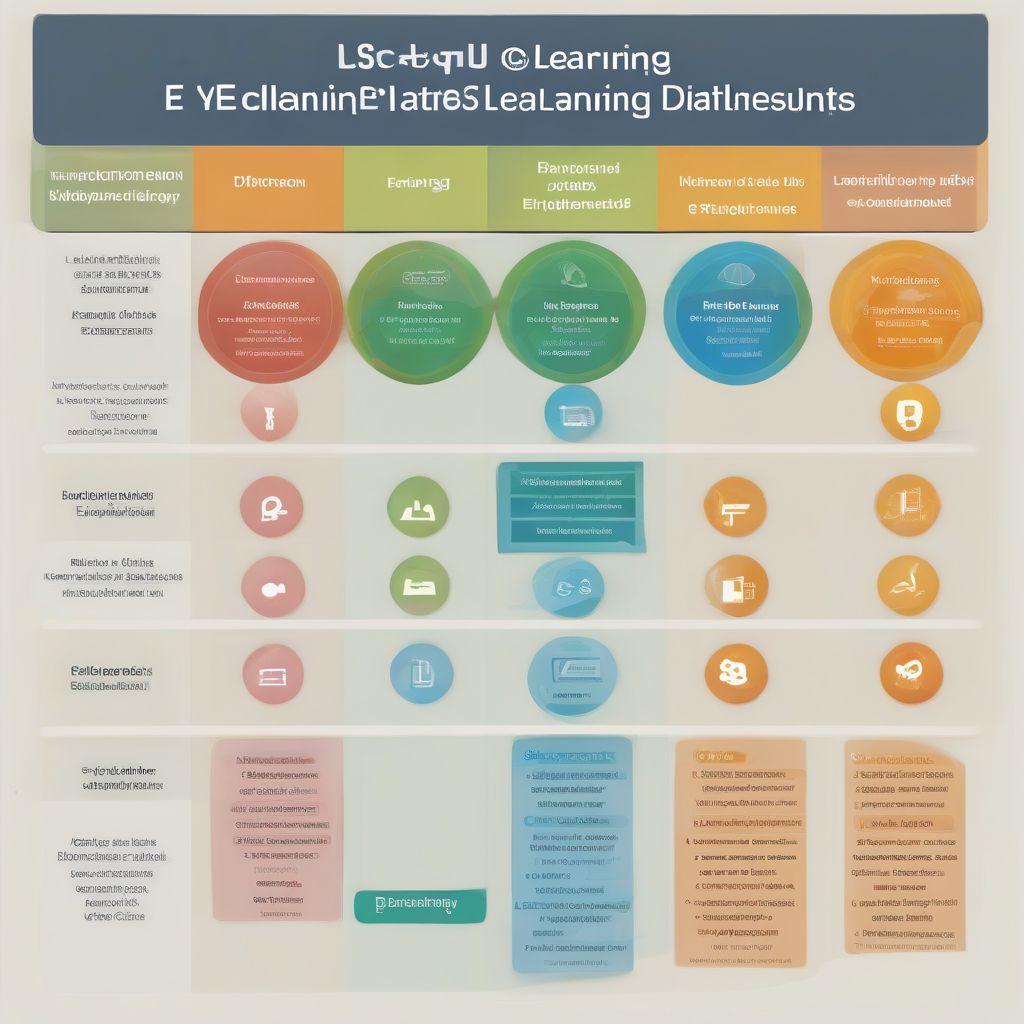Picture this: you’re committed to fostering a culture of continuous learning within your organization. You envision your team equipped with the latest industry knowledge, their skills honed to perfection. The problem? Traditional training methods feel about as appealing as week-old salad – time-consuming, costly, and let’s face it, not always engaging.
Enter the world of e-learning platforms. These digital havens promise accessible, engaging, and scalable training solutions. But with a market brimming with options, choosing the right platform feels like navigating a maze blindfolded. Don’t worry, we’re about to shed some light on the path ahead.
This comprehensive guide dives deep into the world of comparing e-learning platforms, tailored specifically for your industry needs.
Why Your Industry Needs a Tailored E-Learning Approach
We live in a world of specialization. Just as you wouldn’t use a wrench to hammer a nail, a one-size-fits-all e-learning platform won’t cut it. Here’s why:
- Industry-Specific Content: Your team requires training that’s directly relevant to their day-to-day tasks and the nuances of your field. A generic platform might offer courses on general business skills, but what about the specialized software your engineers use? Or the latest compliance regulations in your healthcare practice?
- Regulatory Compliance: Speaking of regulations, many industries are bound by strict training requirements. A platform designed with these regulations in mind ensures your team stays compliant and your organization avoids hefty fines.
- Integrated Tools and Features: Different industries rely on different tools. For instance, a sales team might thrive with a platform integrated with their CRM, while software developers might prioritize platforms offering virtual coding sandboxes.
Key Features to Compare When Choosing an E-Learning Platform
Now that you understand the ‘why’ of specialized platforms, let’s explore the ‘what’ – the essential features to compare:
1. Content Creation and Customization
- Content Library: Does the platform offer pre-built courses relevant to your industry? While starting with a solid library is beneficial, the ability to customize and create your own content is crucial.
- Authoring Tools: Look for intuitive authoring tools that allow you to build engaging courses even without a design background. Features like drag-and-drop interfaces, multimedia integration, and interactive elements can make a world of difference.
2. User Experience and Engagement
- Mobile Responsiveness: In today’s mobile-first world, ensure the platform works seamlessly across devices, allowing learners to access training anytime, anywhere.
- Gamification and Interactive Elements: Spice up the learning experience with elements like quizzes, badges, leaderboards, and simulations. These features boost engagement and knowledge retention.
- Social Learning Features: Foster a sense of community and collaboration by choosing platforms with features like discussion forums, chat functions, and peer-to-peer feedback options.
3. Reporting and Analytics
- Progress Tracking: Monitor learner progress with detailed reports on course completion rates, assessment scores, and areas where individuals might need additional support.
- Data-Driven Insights: Go beyond basic tracking and leverage platforms that offer insights into learning patterns and trends. This data can inform your training strategies and optimize content for maximum impact.
 Comparing E-Learning Platforms
Comparing E-Learning Platforms
Top Considerations for Specific Industries
Let’s delve into how these features translate into real-world applications for different industries:
1. Healthcare:
- Compliance Focus: Look for platforms compliant with HIPAA regulations and offering courses on topics like patient privacy, infection control, and medical coding.
- Simulation Training: Platforms with virtual reality or simulated environments are invaluable for practicing medical procedures and patient interactions in a safe, controlled setting.
2. Technology:
- Technical Skill Development: Prioritize platforms that offer coding challenges, virtual labs, and courses on the latest programming languages and software development methodologies.
- Certification Preparation: For tech professionals seeking industry-recognized certifications, platforms offering practice exams and prep materials are essential.
3. Finance:
- Regulatory Compliance: Ensure the platform aligns with financial regulations like FINRA and offers courses on topics like anti-money laundering and ethical conduct.
- Data Analysis Tools: Platforms integrating with financial software and offering data visualization tools can enhance financial modeling and analysis skills.
4. Retail:
- Product Knowledge Training: Platforms enabling the creation of engaging product training modules, including videos, interactive quizzes, and simulations, are crucial for retail teams.
- Customer Service Skills: Look for platforms with role-playing scenarios and courses on communication, conflict resolution, and active listening to enhance customer service skills.
Making the Choice: Evaluating Your Options
With so many factors to consider, choosing the right e-learning platform can feel daunting. Here’s a strategic approach:
- Define Your Needs: Clearly outline your training objectives, target audience, budget, and must-have features.
- Research and Compare: Explore industry-specific platforms, read reviews, and request demos to experience their functionalities firsthand.
- Pilot and Gather Feedback: Before committing, run a pilot program with a small group of users to gather feedback on the platform’s usability, content relevance, and overall effectiveness.
[amazon bestseller=”e-learning development”]
Conclusion: Empowering Your Team with the Right E-Learning Solution
Choosing the right e-learning platform is an investment in your team’s growth and your organization’s success. By understanding your industry-specific needs and carefully evaluating platform features, you can create a learning environment that fosters engagement, boosts performance, and equips your team with the knowledge and skills they need to thrive.
Now, we’d love to hear from you! What are your biggest challenges in finding the right e-learning platform for your industry? Share your thoughts and questions in the comments below!
